The Ultimate Guide to Plant-Based Protein
Looking to incorporate more plant-based eating into your diet, but not sure of where to get your protein from? This list shares all the sources of plant-based protein so you can make sure you’re getting enough protein in your diet!
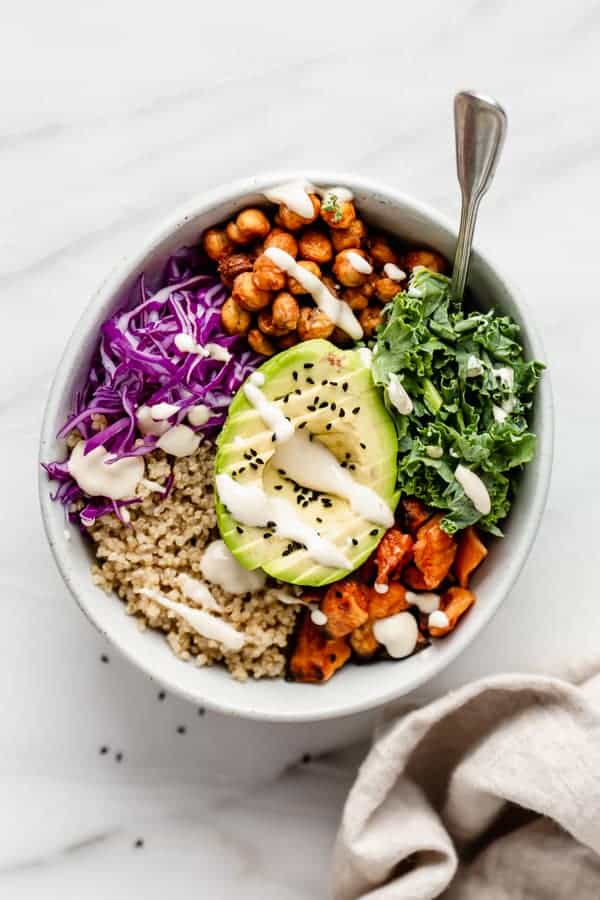
What is protein?
Protein is a macronutrient that helps to build and repair structures in your body. Your body is made up of many proteins, which are made up of amino acids. Your body needs 22 amino acids to function properly.
A food that is a complete protein source contains all of these.
The average recommendation for protein intake is approximately 0.8 grams of protein per kilogram of body weight. Everyone’s body is different though, so it’s important to stay tuned into what YOUR body needs.
Do plants have protein?
Yes! However, many plants do not have all 22 amino acids (otherwise known as “incomplete proteins.”)
This is why eating a wide variety of foods is essential for a vegetarian and vegan diet as that helps the body absorb all of the nutrients it needs.
What are the key sources of plant protein per serving?
1. Beans
Along with being one of the most affordable sources of plant protein, beans are a convenient addition to a multitude of dishes and full of nutrients! Adding beans to a grain makes them a complete protein source to boot.
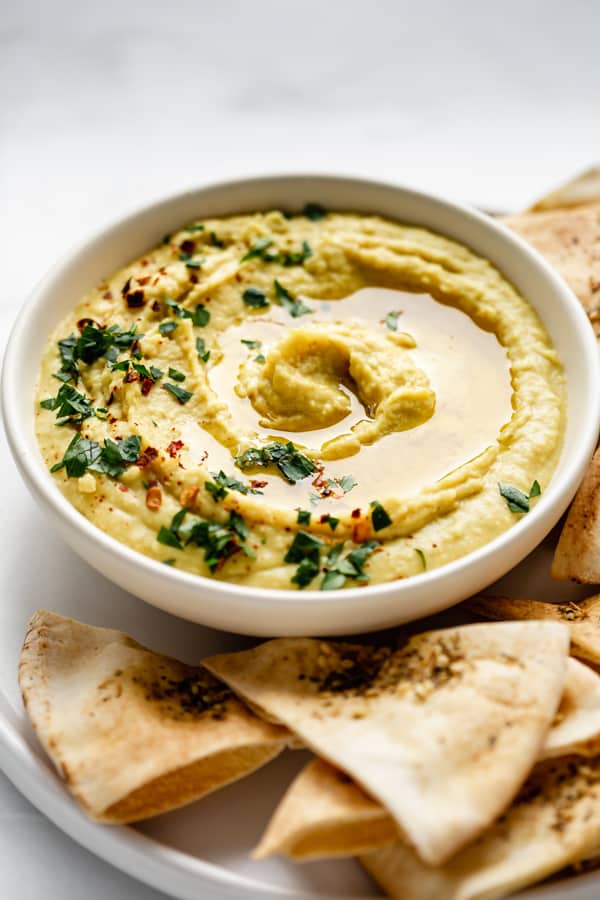
- Black beans: Their dark color indicates a strong antioxidant content and they also have less starch than some other beans. 7 grams protein per ½ cup.
- Chickpeas: The base of beloved hummus everywhere. 8 grams of protein per ½ cup.
- White beans: Milder in flavor and texture than chickpeas, but delicious in soups or salads. 7 g protein per ½ cup.
- Edamame: A little green soybean, edamame is a fun snack on its own and a great addition to stir-fries. 8 g of protein per ½ cup.
2. Nuts
Nuts are antioxidant powerhouses that protect your cells from damage caused by free radicals. They are chock full of protein and healthy fats, and very easy to integrate into your diet. Here are some of my favorites!
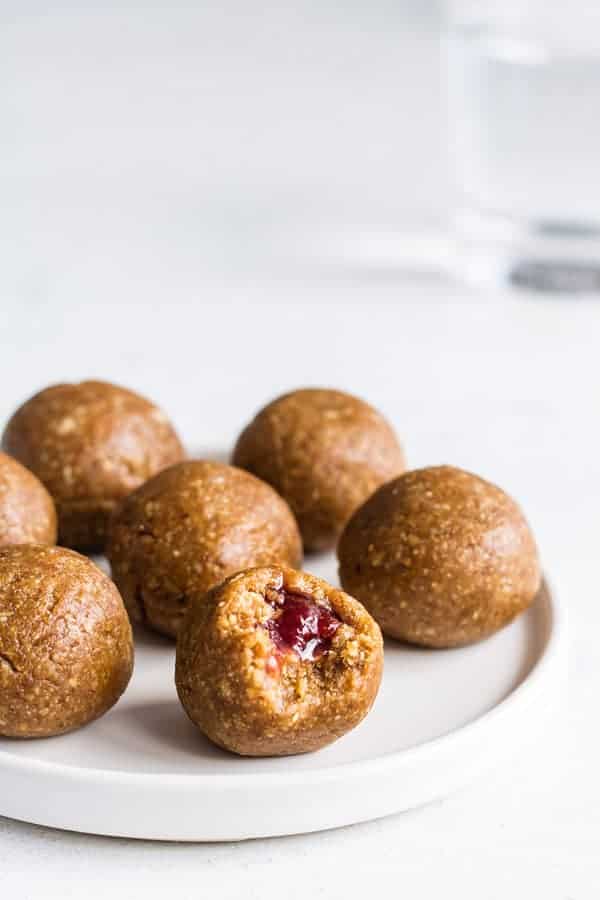
- Almonds and almond butter: These powerhouses have 7g protein per cup of fresh nuts and 6g protein in 2 tablespoons of almond butter.
- Walnuts: Also a wonderful source of healthy omega-3s, walnuts support a variety of systems in the body. 5g of protein per ¼ cup.
- Pecans: A little bit softer than some nuts, pecans have a unique texture that makes them great in desserts. They also have 3g of protein in a 1 oz serving.
- Cashews: A more mild nut that’s great for neutral flavorings, cashews have 5g of protein in 1 oz serving.
- Peanuts and Peanut Butter: Though technically not a “real” nut, peanuts and peanut butter are probably one of the most popular nut choices. Peanuts have 7g of protein in 1oz, and peanut butter has 7g of protein in 2 TBSP. Great for post-workout too!
3. Seeds
If you think about it, it makes sense that seeds are so healthy for us. They are literally the start of life for plants! Seeds are high in fiber, vitamins, minerals, and antioxidants. Here are some examples of simple recipes to incorporate more seeds in your diet.
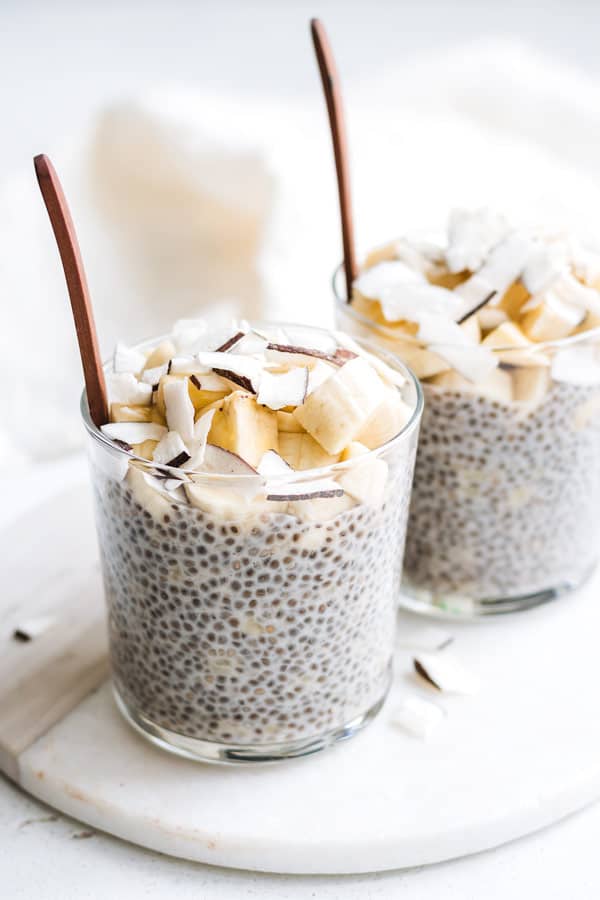
- Buckwheat (actually a seed, not a form of wheat): Buckwheat is a complete protein (all amino acids!) and has 6 grams per 1 cup cooked.
- Hemp: Hemp seeds can be added to just about anything and contain 6g of protein in just 2 TBSP.
- Quinoa: Also an undercover seed full of antioxidants, fiber, and magnesium, it has 8g of protein per 1 cup cooked. A perfect base for buddha bowls!
- Sunflower: Best out of the shell, this seed adds great crunch to salads with 3g protein in 2 TBSP.
- Pumpkin: These seeds are overlooked often but are very high in iron, along with 5g of protein per ¼ cup.
- Tahini: This sesame seed butter has a ton of iron, magnesium, B vitamins, and 7g of protein in 2 TBSP.
- Chia: This blog’s namesake seed lives up to the hype; it has 5g of protein in just 2 TBSP. It also acts as a wonderful egg substitute when combines with 3 TBSP of water. It’s perfect in one of my favorite snacks, chia pudding!
4. Whole Grains
Whole grains are a key staple of many plant-based diets for good reason: they contain a lot of nutrients, fiber, B vitamins, and minerals.
They also can help lower blood cholesterol levels and lower risk of heart disease! Anyone who ate Cheerios cereal growing up remembers this from the box 🙂
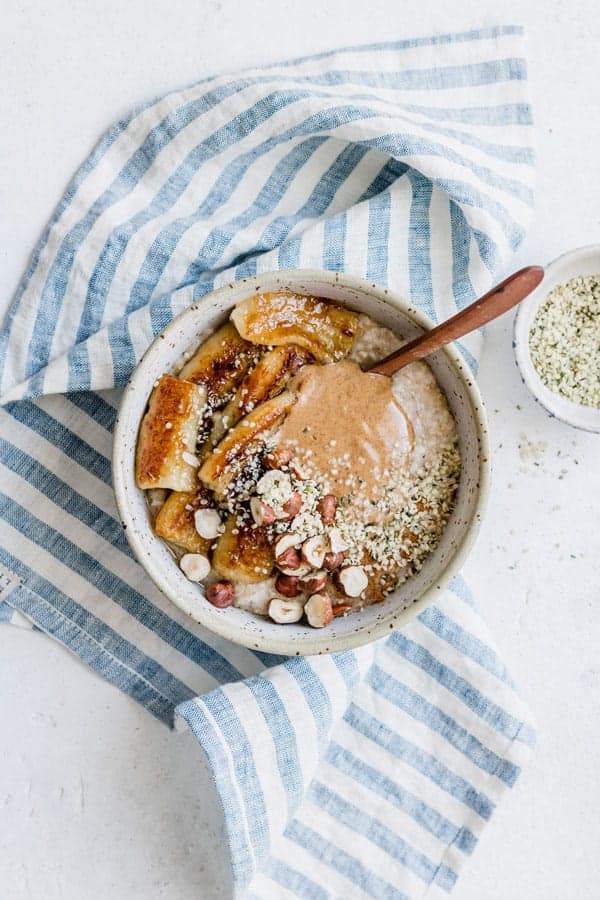
- Rolled Oats: Oatmeal has three times the protein as brown rice with more fiber and less starch! 5g of protein per ⅕ of a cup dry.
- Sprouted bread: Often easy to find in the refrigerated/freezer section of your grocery store, there are about 6g of protein in one slice of bread!
- Bean/lentil pasta: Easy enough to sub for traditional pasta, gluten-free varieties like quinoa, black bean, and lentil pasta all provide a convenient source of protein in any meal, which helps keep you fuller longer. Many contain over 20 g protein per serving.
5. Vegetable/Legumes
We all know it’s good to eat more veggies, but did you know that certain are fairly protein-rich? Talk about a win-win!
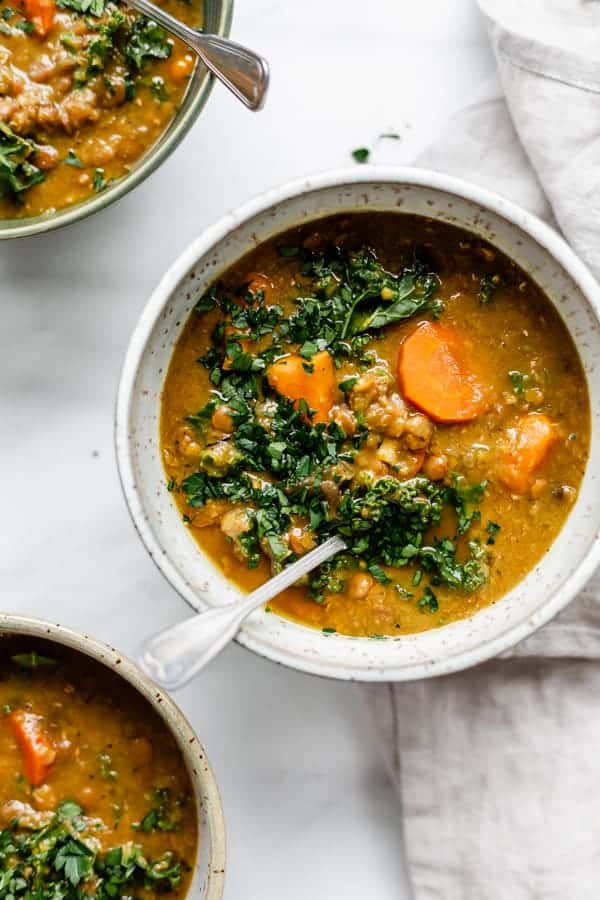
- Peas: Peas are also rich in leucine, an amino acid essential to metabolism and weight loss that is hard to find in most plant-based food! Peas contain 9g of protein per cup.
- Broccoli: One cup of broccoli contains 30 percent of your daily calcium needs, along with vitamin C, fibre, and B vitamins and 3g protein per cup!
- Lentils: Super affordable lentils are a great way to add 9g of protein per ½ cup serving! They take on whatever flavor their cooked with and have a satisfying feel.
Other high-protein sources:
Tofu and tempeh, two classic standbys in the plant-based community. Some people have reported trouble making them taste good, but we think it’s mainly the texture that matters most!
Try the below recipes for some simple intros into these showstopping protein ingredients. Soy has been a hot-button issue lately, but it’s actually been shown to help fight cancer.
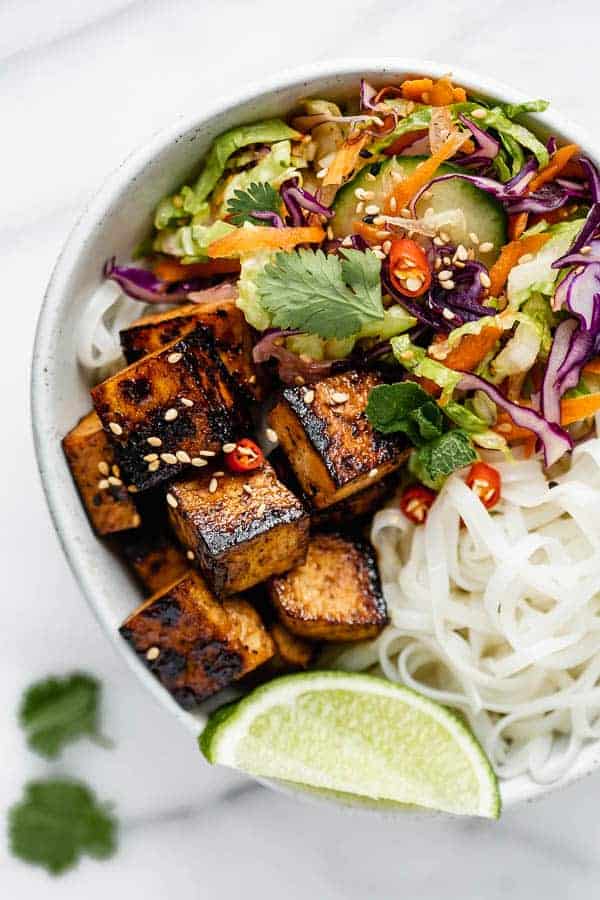
- Tofu, extra firm: Tofu is a master of disguise since it can taste like whatever you cook it with! It has 10 grams of protein per cup. Look for extra-firm for the highest protein option.
- Tempeh: Tempeh works well as a meat substitute, and is easy to digest to boot. It has 15g of protein per ½ cup.
- Nutritional yeast: Everyone’s favorite cheese substitute, this golden dust has 8g of protein per ¼ cup.
High-protein recipes to try
Looking for even MORE easy ways to prepare plant-based protein and add it into your diet? Here are some simple recipes high in plant-based protein to get you started–feel free to mix and match the proteins we discussed above.



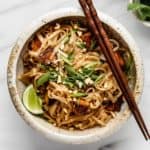

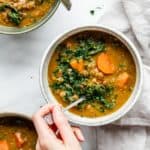
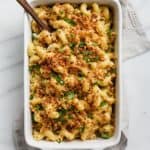
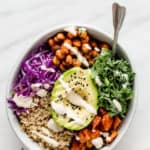
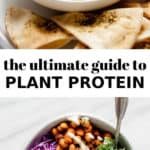
Thank you for this, it’s a fantastic guide. I am suffering badly with long-Covid symptoms and still have extreme exhaustion, so lots of protein is what I’m looking for, to balance out my diet right now. Thank you 🙏xx
So happy its helpful Nicola!
Perfect timing as a friend asked me yesterday about protein. He says he can tolerate lentils, but not beans, so much. Plenty here for him.
Question: how about seitan? It’s so easy to make a tasty. Did you exclude it for a reason?
Thank you Jess for your generosity in sharing this information!
Alain
You’re welcome Alain!
Loved this….so helpful! Thank you.
You’re welcome Charlene!
This is fantastic! Thank you!
You’re welcome Jill!
Hey there! I’m enjoying your information. What I’m starting to look for at this time is a plant base diet that’s sensitive to a sensitive colon. My most precious better Half is joining me,but tummy is now,at our age,an issue.
Thank you!
Hope you can find some recipes on the blog that you enjoy! 🙂